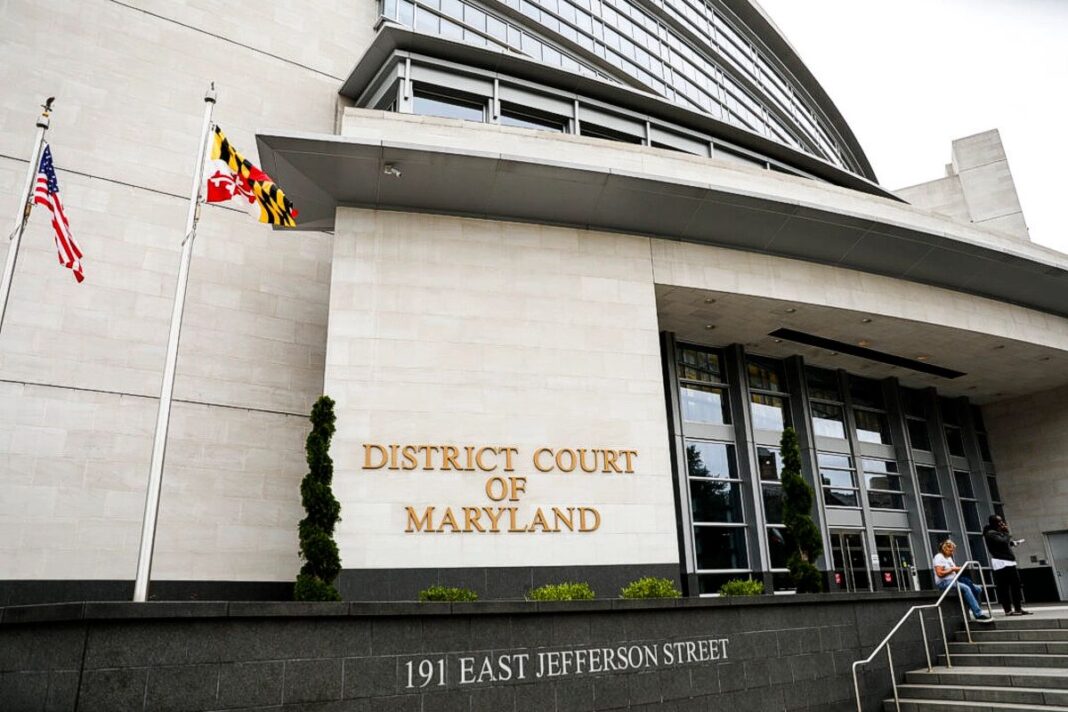The administration alleges that judges in the District of Maryland failed to properly issue a sweeping block on deportations.
The Trump administration is suing each of the 15 federal judges from the District of Maryland, alleging that the district issued an illegal order automatically blocking deportations for individuals who file lawsuits before the court.
“Every unlawful order entered by the district courts robs the executive branch of its most scarce resource: time to put its policies into effect,” a June 24 complaint by the Justice Department read.
“In the process, such orders diminish the votes of the citizens who elected the head of the executive branch.”
The District of Maryland has multiple locations with judges who have issued injunctions against the administration’s immigration enforcement. It was the venue, for example, for the high-profile lawsuit challenging Kilmar Abrego-Garcia’s deportation under the Alien Enemies Act.
President Donald Trump initially invoked that law in March to expedite deportations of individuals he suspected were part of the Venezuelan Tren de Aragua gang.
The Supreme Court intervened in April, stating that potential deportees should have the opportunity to seek habeas relief, which is a legal mechanism for people to challenge their detention by the government.
Citing a “recent influx of habeas petitions,” Chief Judge George Russell issued a standing order in May targeting illegal immigrant detainees located in Maryland.
If individuals filed petitions, his order would purportedly prevent the administration from altering their legal status or removing them from the continental United States.
“The recent influx of habeas petitions concerning alien detainees purportedly subject to improper and imminent removal from the United States that have been filed after normal court hours and on weekends and holidays has created scheduling difficulties and resulted in hurried and frustrating hearings in that obtaining clear and concrete information about the location and status of the petitioners is elusive,” Russell said.
Russell advanced the order as a way to preserve the court’s jurisdiction or ensure judges can rule on the issue before the individuals are removed from the country.
He also sought to ensure that the individuals filing the petitions were able to participate in court proceedings.
The block remains in effect for two days after the court’s clerk files a notice of the petitioner’s documents.
According to the Justice Department, Russell’s order had multiple flaws, including that it doesn’t leave room for judges to consider four factors the Supreme Court set up to weigh whether to block actions or policies.
By Sam Dorman








